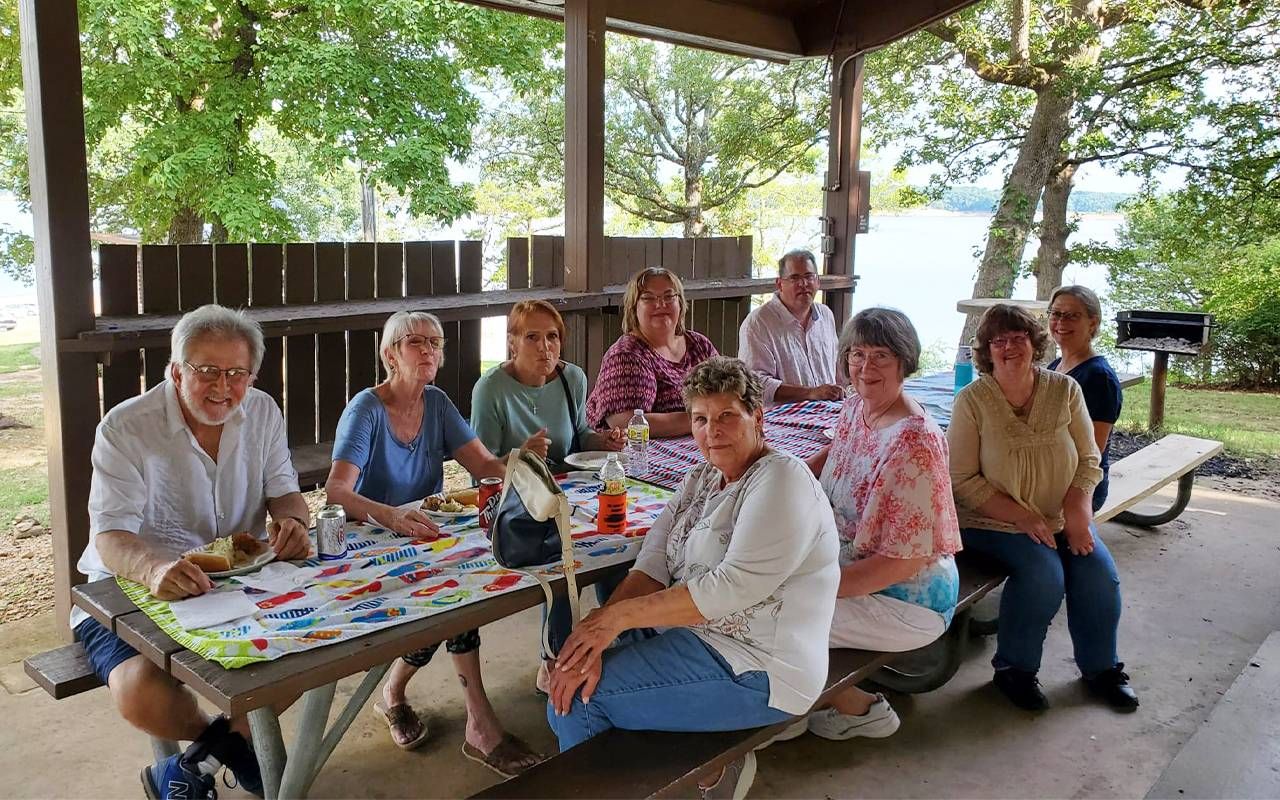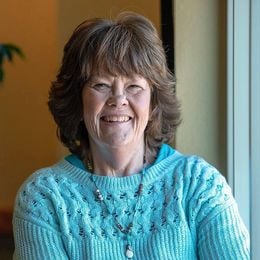Feeling Isolated? Form Your Own Social Group
There are many benefits of engaging socially, especially as we age. Options to get involved are more available now than ever before.
When my husband, Dale, passed away at the end of 2018, my local social circle was very small. We'd moved to a very rural area 11 years prior, I work from home and like many married people, most of my social life revolved around my life with Dale.

I've always been social and did know a few people, one of whom invited me to a gathering a couple of months after my loss. I met another recent widow and we both lamented over no longer having anyone to go to the movies with or to dine out with.
Knowing we live in an area with many mature retirees, we both thought there must be others who needed more friends for activities. We decided to create a social group for widows. When others who were divorced, or caretakers for partners who could no longer go out, wanted to join, we expanded the parameters.
Knowing we live in an area with many mature retirees, we both thought there must be others who needed more friends for activities.
The group isn't a dating group, but a way for singles in our area to meet up for planned meals, live theater, movies, hikes, festivals and other events happening in our area.
Many Benefits to Social Connections
Numerous studies have shown the benefits of social interaction with close friends and family as we age are many, including contributing to better emotional well-being and possibly warding off cognitive impairment.
A 2019 study funded by the National Institute on Aging and the Eunice Kennedy Shriver National Institute of Child Health and Human Development looked at 300 adults, 65 and over, who live in the Austin, Texas area. The study focused on how social interaction with friends, acquaintances and even strangers not only provides the same benefits mentioned above, but may mean older adults who engage in these encounters may also be more physically active. Older adults who have more physical activity also have higher chances of avoiding certain diseases and remaining healthier longer.
"There is a large research base that shows that people who engage with a broader social network live longer and are in better health. There are a lot of reasons for this, including that our loved ones support us. When we are ill, they make us feel good about ourselves, and keep us from being lonely. But this study shows that we are also more physically active and do a greater variety of activities when we are with a broad array of social partners," says Karen Fingerman, a professor of human development and family sciences at University of Texas-Austin and the director of the university's Texas Aging & Longevity Center.
"As we get older, we tend to want to spend more time with people we already know and love."
Fingerman added that this study revealed two important things:
- Linked the idea that a broad social network makes you more active
- People are more physically active while they are with a greater variety of social partners throughout the day, and when people are involved in a greater array of activities they also engage with a greater variety of partners.
"As we get older, we tend to want to spend more time with people we already know and love. So a lot of that is preference. One way to increase social engagement is to engage in a variety of activities," says Fingerman. "Things you do that expose you to the same people on a regular basis such as attending religious services, going to the gym at a similar time each day, grocery shopping on similar days and times and speaking briefly with the checkout person to make them familiar."
Donna Fields Brown, 71, wasn't aware of the study when she moved to Pearce, Arizona, a rural community approximately 50 miles north of the Mexican border, but she knew she wanted to continue to be physically active while meeting people in her new town. She joined a chair yoga class and started teaching a mat yoga class.
"This was a community of people that pretty much kept to themselves, but sometimes people in the class would even go to a local coffee shop afterwards. I'm proud the classes helped people get out of their homes and it also gave me an opportunity to make new friends," says Brown.
"This was a community of people that pretty much kept to themselves, but sometimes people in the class would even go to a local coffee shop afterwards."
Through those connections, Brown also met a few people who formed a hiking group that meets for weekly hikes when the weather is cooperative. She also met people to play music with and formed a band. COVID reduced the number of people who come to yoga classes, but Brown hopes to build them to pre-pandemic numbers.
Be a Joiner Without Being a Planner
Many larger areas already have interest groups on Facebook people can join. Tammi Kaeberlein, 52, and founder of Wander Healthy in North Bend, Washington belongs to ten local Facebook groups reflecting her interests such as hiking, travel and writing. She finds the groups help her stay active and introduce her to people she wouldn't have otherwise met.
David Siegel, CEO of Meetup, one of the most popular online forums that help people with similar interests connect offline, says Facebook groups may be beneficial, but he says one of the problems is that it's an online forum and he's heard from many they have issues with people actually showing up for in-person activities (an issue we've dealt with in our local social group).
Siegel says Meetup doesn't track how many people who use the groups who are 50+, but information gathered from Google suggests about 20% are over 55 and there are approximately 3,000 groups that specify that age category in the group's title.
"Find a group that matches your interests, push the fear aside and go in with an open mind."
Siegel says the most important thing is to find (or create) a Meetup group targeting people with similar interests. "Ageism is a real thing and there aren't enough older adults connecting with younger ones or younger people connecting with older adults," says Siegel. "It's great when there are variety of different ages in a group."
According to Siegel, 99% of Meetup groups are free. However, some may charge a small fee to join or charge a fee for activities to help the organizer cover the costs of keeping the group on the Meetup site. Siegel advises, "Find a group that matches your interests, push the fear aside and go in with an open mind. You want to find people you hit it off with, but you might find something unexpected, too. I have a friend who runs Meetup groups and he's found his last two jobs through someone in a bowling group."
My Local Group is Four Years Strong
It's been four years since my friend and I formed our local social group. Aside from the 2020 pandemic year, we are still going strong. I've met some wonderful people through the group, one is now one of my best friends. Most importantly, it's given me a group of people to get out and do things with and helped me expand my social circle and activities.
It's also led me to unexpected things. A woman in the social group mentioned a dating meet and mingle event I didn't know about. That led me to a first date this coming weekend, something that wouldn't have happened without my social group.


